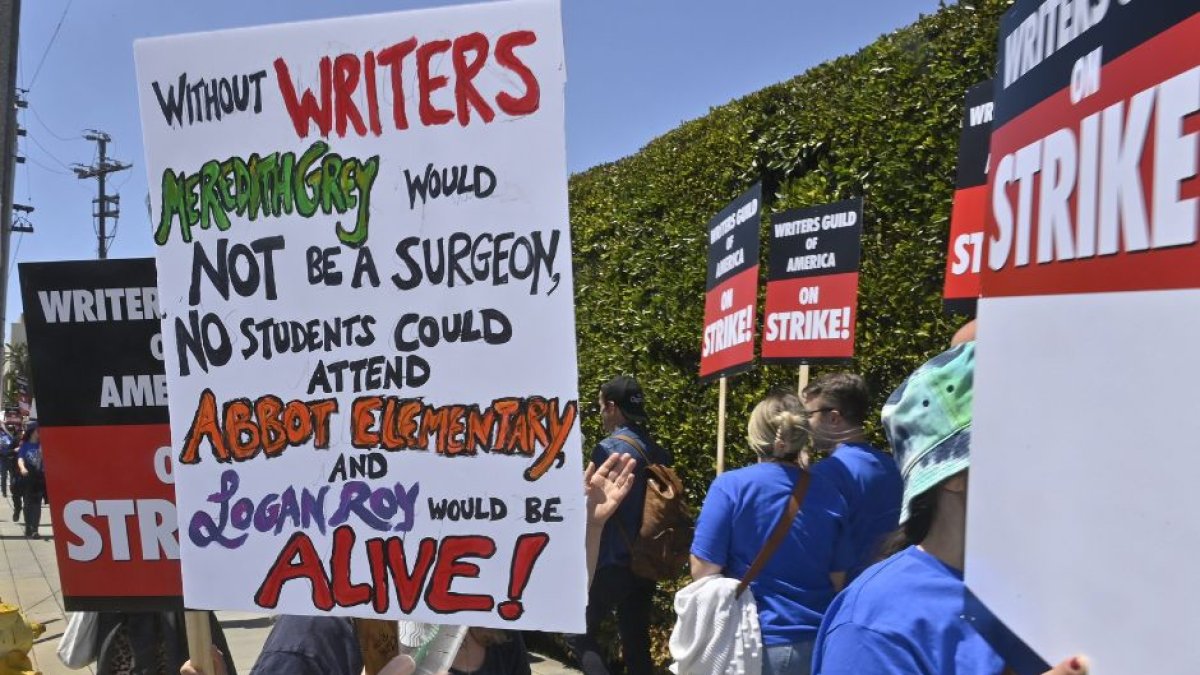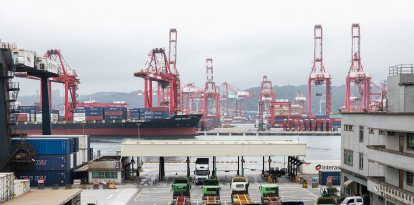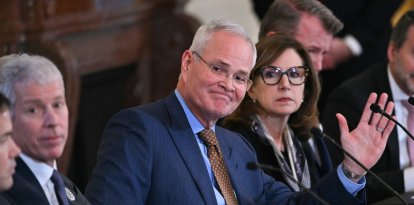Los Angeles, a city on strike
In less than half a year, California's most populous city has experienced four work stoppages that have resulted in millions of dollars in losses.

(Cordon Press).
Los Angeles is going through a turbulent few months of work stoppages. Work conditions for employees across many different sectors in the U.S.'s second most populous city are leading to major strikes. At the moment, three strikes are active: the first and most notable is that by Hollywood actors and screenwriters; the second is hotel workers; and the third is civil servants.
These three stoppages are already causing multi-million dollar losses in the Californian city.
Hollywood actors and screenwriters
The double strike started by Hollywood screenwriters in May and joined by actors has not only affected the Screenwriters Guild (WGA), the Actors Guild (SAG-AFTRA) and the Alliance of Motion Picture and Television Producers (AMPTP): Little by little, it has begun to harm the whole nation. Last Friday was the first meeting between the parties involved to try to reach an agreement. This meeting was of little use, as no deal was reached.
The shutdown in the world's movie capital, which this Wednesday reach the 100-day mark, costs Los Angeles and the rest of California about $30 million a day. In other words, the city has so far lost around $3 billion.
Hotel workers
The case of hotel employees is different. They claim that their current wages are insufficient compared to the cost of living in Los Angeles. The union representing them, Unite Here Local 11, is demanding that they be paid $5 more every hour plus an annual increase of $3 an hour within two years, financial assistance for housing, better health care, and a pension and a modification in work schedules to have less workload.
The strike by hotel workers, among whom are housekeeping staff, bellhops, waiters and receptionists, began on July 2. These employees work for prestigious hotels such as the Beverly Hilton and the Hyatt Regency LAX.
Civil servants
More than 11,000 public employees in Los Angeles went on strike on Aug. 8. They alleged that the local administration led by Karen Bass exercised "unfair labor practices" with civil servants, in addition to the fact that a review of their contracts was agreed and has not yet happened. The stoppage will be the most important in the sector in the last 15 years.
Bass said that they have been in negotiations for more than half a year with SEIU Local 721, the union that represents all Los Angeles employees. This stoppage interfered with normal activity at Los Angeles International Airport, the Port of Los Angeles and Los Angeles City Hall. Picketing was also organized.
Education
In March, workers at the Los Angeles Unified School District (LAUSD), the second largest in the country, started a strike to protest "bad practices" carried out by the school district's management. Several demonstrations and protests were called in front of various schools.
Around 65,000 employees, including school bus drivers, janitors and assistants, as well as teachers, supported that strike. It lasted three days and affected some 420,000 students.























